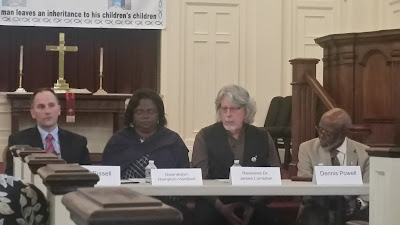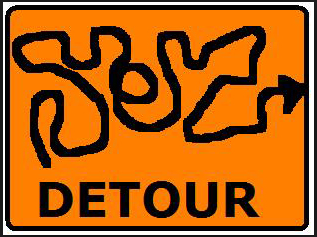Later this afternoon I had the honor of introducing one of our saints to the wider Berkshires at the BIO MICAH Awards ceremony. There were activists and church leaders from the region there and I got to check in with a few dear souls I haven't seen for years. Then, while sipping local fresh apple cider, a woman from St. Mark's Parish taps my shoulder and asked, "What did you think of the show last night?" She was referring to the local production of the Rocky Horror Picture Show at Berkshire Community College. "We LOVED it" I replied setting off 20 minutes of reliving the naughty foolishness of this splendid production. Then an immigrant pastor from the Philippines and I chatted about doing the work of love and justice in a wildly secular culture. I checked in with a few other sweet activists and found that one man was moved by Jean Vanier when he read him in undergraduate school. (Small world, yes?) I shared a conversation with a local spiritual director, too and we agreed to do an on-line "abbey of the arts" retreat together for November. And right before the awards ceremony started I was asked if I would lead the closing song because "Sr. Natalie had to leave early."
Introducing Dick was tender: he is a kind and generous man who spoke about the five lights in his life. Recalling his beloved parents - and then his treasured wife - brought him to the edge of tears. Mine spilled over. For two hours we were white and black together, Protestant, Catholic and Jew as well. At the close, I mentioned that "Sr. Natalie would have sung this like a Sister of St. Joseph, and many of us know it from Bible camp, but I first heard it in the Deep South so we're going to try it a slower and more soulfully." Leading a solid clap on the offbeat, we brought it home with "This Little Light of Mine."
As I was leaving I got to speak with a few local colleagues who feed my heart. Walking out to my car, the whole family of our honoree were present so I got to meet the newest member, Rory, as well as daughters, son-in-law and their momma. Pulling into the grocery store to get a few last minute items, I heard, "Hey, James... nice job!" from a music minister friend who holds forth just down the block from us. "Getting a mostly older, spread out crowd to sing with soul was... awesome." While at the check out counter, a young, African American woman said, "Excuse me, sir, but that is the BIGGEST tomato I have ever seen! It's way more interesting than my pork chops." We laughed, exchanged hand shakes and names before she said, "So if I see you again you HAVE to tell me if that tasted as good as it looks."

Heading back to my car, the local hunger center coordinator waved as she went into the store and I left. And then a young woman and her small child were almost blown away by the wind. I stopped to help only to hear, "James! Oh James, that's you!" It was Tessa and baby Eve in rain gear. I haven't seen them since Spring. We hugged before they scampered off as the rain grew more fierce. I've played music with her dad here for 10 years. We went to Turkey together. I celebrated her wedding and baptized baby Eve. I think the world of this young, wise and immensely talented person.
Clearly, while one door closes here another is already opening. I give thanks to God for a fascinating day and deep connections reaffirmed. It is our oldest daughter's birthday, too and for the gift of her sweet self - and her precious family - I am full to overflowing.























